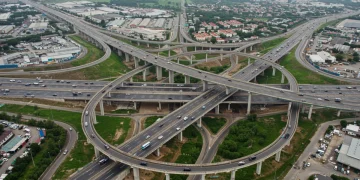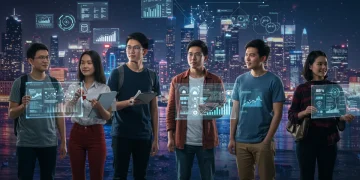Debate on Musk’s public policy role raises critical questions
The debate on Musk’s public policy role highlights his significant influence on renewable energy, technological innovation, and social responsibility, affecting global discussions and governance structures.
The debate on Musk’s public policy role has become a hot topic, prompting many to ponder how a tech giant influences governance and societal norms. What are the implications of his actions? Let’s dive in.
Understanding Musk’s influence on public policy
To grasp Musk’s influence on public policy, it’s important to first recognize his role as a tech innovator. His ventures, like SpaceX and Tesla, significantly impact various sectors, pushing boundaries of innovation.
Musk’s approach often intertwines technology with governance, which raises questions about accountability. Many see him as a visionary, while others critique his methods.
The power of innovation
Innovation can sway public policy. For instance, when Tesla released electric vehicles, it changed industry standards. This shift forced governments to reconsider regulations related to energy and emissions.
The role of social media
Musk utilizes social media to shape public opinion. His tweets often ignite discussions on critical issues, from climate change to space exploration:
- Innovative initiatives can redefine regulatory frameworks.
- Public outreach through social media influences policy discussions.
- Technological advancements prompt new regulations.
- Musk’s projects often receive immediate public attention.
This direct communication allows him to engage with millions, making his perspectives a part of the public discourse. People often debate his views, contributing to his influence.
Moreover, Musk’s investments in renewable energy showcase how tech leaders can steer policy toward sustainability. His focus on solar power and electric vehicles has pressured governments to consider renewable energy solutions, fostering a shift toward greener policies. The debate on Musk’s public policy role underscores the responsibility tech giants carry as they impact society.
Musk’s collaborations with governments
His partnerships with various governments reveal another layer of influence. Collaborations with state and national leaders highlight how innovation can meet policy needs. Through these partnerships, Musk helps shape favorable policies for his companies while also addressing public concerns.
Understanding Musk’s influence on public policy is crucial in today’s tech-driven world. It represents a significant intersection of innovation and governance that can redefine future regulations, prompting ongoing discussions about technological impacts on society.
Key moments in Musk’s policy engagement
Throughout recent years, several key moments have defined Musk’s policy engagement. His actions and statements have not only shaped industries but have sparked public debate on various issues.
One such moment was the announcement of Tesla’s Gigafactory. This ambitious project aimed to revolutionize energy production and storage. By investing billions in sustainable technology, Musk made a strong statement about the future of energy and its intersection with public policy.
Engagement with government
Musk has frequently engaged with government officials to influence policy decisions. Notably, he invited politicians to Tesla’s facilities to showcase innovation up close. This direct engagement highlights how tech leaders can affect outcomes:
- Promoting electric vehicle regulations.
- Influencing renewable energy policies.
- Encouraging government support for emerging technologies.
- Building public-private partnerships.
Another pivotal moment was Musk’s involvement in the discussion surrounding COVID-19. He took a controversial stance on lockdown measures, arguing for a balance between health and economic stability. His tweets and public comments attracted significant media attention, showcasing the power of social media in shaping policy discourse.
Policy impact through innovation
Musk’s initiatives have often resulted in policy changes. For example, the growing adoption of electric vehicles has led to new incentives from governments. Investments in autonomous driving technology also pressured regulators to consider updated transportation laws. Here are a few notable impacts:
- New tax credits for electric vehicle purchases.
- Funding for charging infrastructure.
- Revisions to emissions targets.
- Policy discussions around AI in vehicles.
These moments illustrate Musk’s engagement and its widespread implications for public policy. By addressing critical issues and fostering discussions, he has influenced not only technology but also the regulations governing it. Understanding these key moments can provide insights into how tech leaders navigate policy landscapes.
The intersection of technology and governance

The intersection of technology and governance is becoming increasingly important in today’s digital age. As technology evolves, so does its role in shaping public policies and governance structures.
One prominent example is the role of social media in political engagement. Politicians and policymakers use platforms like Twitter and Facebook to communicate directly with the public. This direct line has transformed how leaders interact with their constituents, allowing for immediate feedback and public discourse.
The role of innovation
Innovation drives many aspects of governance. Technologies like artificial intelligence (AI) and data analytics help governments make more informed decisions:
- AI can predict crime patterns, improving public safety.
- Data analytics can streamline government services, enhancing efficiency.
- Smart city technologies manage resources effectively.
- Digital platforms facilitate civic engagement and transparency.
These technological advancements are reshaping traditional governance models. For instance, cities using smart technologies can better allocate resources, addressing urban challenges more effectively.
Challenges of technology in governance
However, the integration of technology into governance brings challenges as well. Privacy concerns arise when governments collect and store massive amounts of data. Citizens often worry about how their personal information is used and protected. Furthermore, the digital divide can lead to unequal access to government services among different populations.
Another consideration is the ethics surrounding AI and automation. Decisions made by algorithms can be opaque, raising questions about accountability. As technology continues to advance, it is crucial to ensure ethical frameworks are in place to guide its use in governance.
The impact of technology on governance will only grow in the future. Embracing these changes while addressing the challenges will be vital to creating effective policies that benefit society as a whole.
Public responses to Musk’s policy actions
Public responses to Musk’s policy actions have been diverse and often passionate. His decisions tend to elicit strong opinions across various audiences, reflecting the complex relationship between a public figure and society.
One notable response came after Musk’s comments on climate change policies. Advocating for free-market solutions, some praised his stance as innovative, while others criticized it as dismissive of environmental concerns. This dichotomy highlights how public figures can influence the conversation on critical issues.
Media Coverage and Reactions
Media outlets play a significant role in shaping public responses. Headlines often reflect polarized opinions on Musk’s actions. For example, when he announced plans for Tesla’s factory in Texas, responses varied:
- Supporters highlighted job creation and economic benefits.
- Critics raised concerns about labor practices.
- Environmentalists debated the impact on local ecosystems.
- Community members discussed infrastructure needs.
Such media narratives can amplify public sentiment, either in support of or against his initiatives. This can lead to increased scrutiny from both political leaders and the general public.
Social Media Influence
Social media serves as a platform where many express their views. Musk’s use of Twitter to share opinions often results in immediate and widespread reactions. Discussions range from excitement over new technology to skepticism about business ethics.
Additionally, his tweets frequently stir debate. For instance, when he proposed changes related to electric vehicles, supporters rallied for cleaner energy solutions, while opponents expressed doubts about feasibility.
These dynamics reflect the evolving nature of public discourse, where technology serves as both a medium for connection and a space for contention. The reactions to Musk’s policy actions emphasize the importance of transparency and dialogue in governance and business.
Future implications of Musk’s public roles
The future implications of Musk’s public roles are vast and complex. As he continues to influence various industries, his actions can significantly shape public discourse and policy.
One critical area is the advancement of renewable energy. Musk’s commitment to sustainable practices with Tesla and SolarCity drives conversations about energy independence and environmental responsibility. His influence encourages more nations to invest in green technologies, creating a ripple effect throughout the global economy.
Technological Innovation
Another important aspect is the role of technology in governance. As Musk pushes boundaries in areas like space travel with SpaceX and transportation with The Boring Company, discussions around regulations and ethical considerations intensify:
- Space exploration raises questions about international space law and governance.
- Transportation innovations challenge current city infrastructures and zoning laws.
- AI advancements call for new regulations to ensure safety and accountability.
- Public-private partnerships may shape future technological landscapes.
As these technologies become more mainstream, the collaboration between tech giants and governments is crucial for addressing potential challenges.
Social Responsibility
Musk’s public persona also prompts discussions on social responsibility. His statements and actions can inspire both support and criticism. For instance, his involvement in philanthropic efforts can influence how tech leaders are viewed regarding societal contributions. More tech leaders may feel compelled to engage in social issues, realizing their significant impact on society.
In conclusion, Musk’s public roles are likely to have enduring implications. His ability to champion innovation while navigating the complexities of governance will be essential as society adapts to rapid changes in technology and public policy.
FAQ – Frequently Asked Questions about Musk’s Impact on Public Policy
How has Musk influenced renewable energy policies?
Musk’s commitment to sustainable practices with Tesla and his promotion of electric vehicles have pushed governments to invest more in renewable energy solutions.
What role does social media play in Musk’s public engagement?
Musk uses social media to communicate directly with the public, sparking discussions and debates which can influence public perceptions and policy.
How do Musk’s technological innovations affect governance?
Musk’s innovations challenge existing regulations and prompt discussions on new laws to ensure safety and ethical standards in rapidly changing technology.
What are the challenges of Musk’s public influence?
While many support Musk’s initiatives, critics often raise concerns about his approach to issues like labor practices and environmental impacts, highlighting the complexity of his influence.





